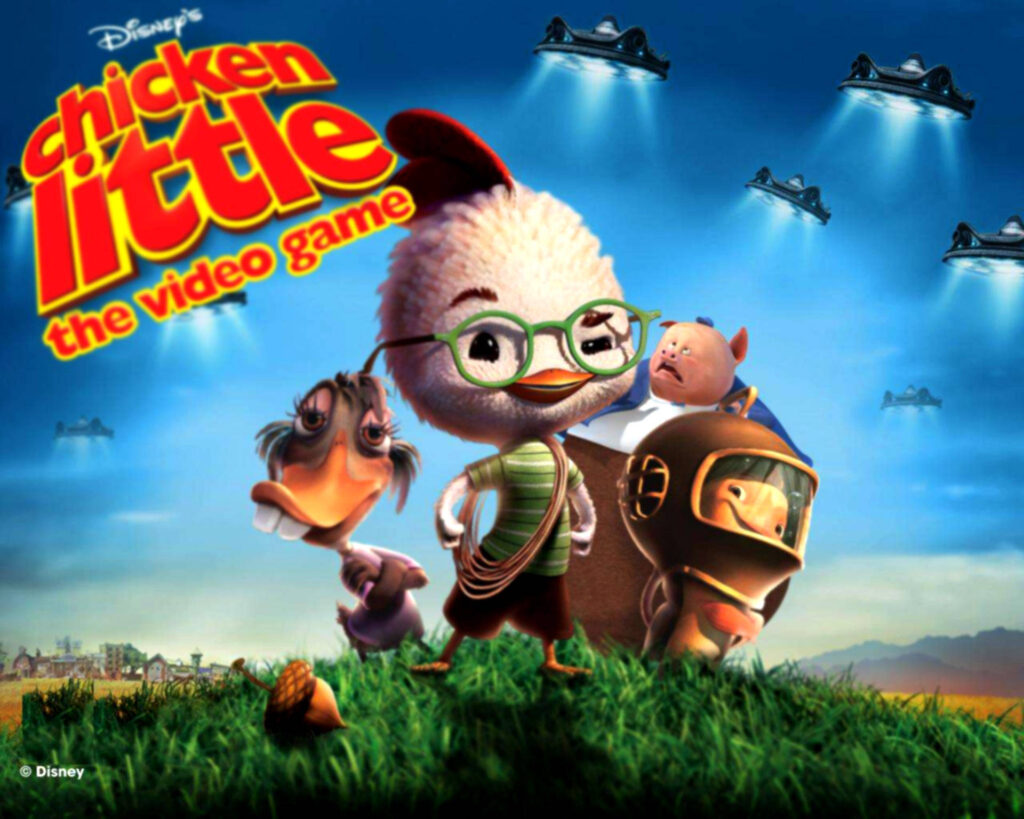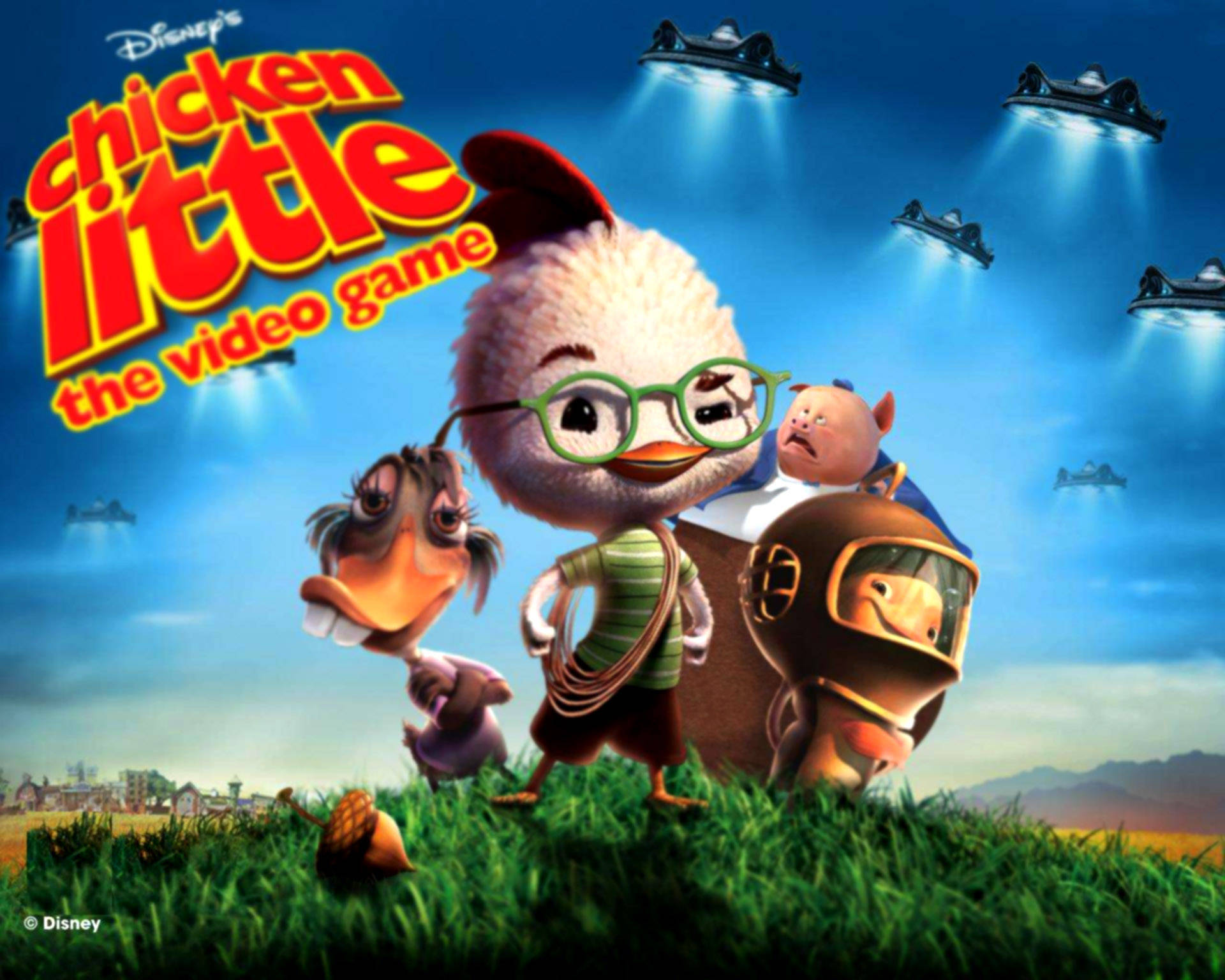
Unraveling the Chicken Little Phenomenon: From Fable to Modern Anxiety
The phrase “the sky is falling!” immediately conjures the image of Chicken Little, the hapless protagonist of a cautionary tale known across cultures. But the story of Chicken Little is more than just a children’s fable. It’s a powerful allegory about mass hysteria, the spread of misinformation, and the importance of critical thinking. This article delves deep into the Chicken Little phenomenon, exploring its origins, its enduring relevance in the modern world, and its psychological underpinnings. We aim to provide a comprehensive understanding of this seemingly simple story and its profound implications for individuals and society.
Deconstructing the Chicken Little Narrative: Origins and Evolution
The story of Chicken Little, also known under various titles such as Henny Penny or Chicken Licken, has roots stretching back centuries. While the exact origin is difficult to pinpoint, similar folktales appear across different cultures, often featuring a chain reaction of panicked animals spreading an unfounded alarm. The core narrative generally involves a small creature, usually a chicken, who is struck on the head by a falling object (often an acorn or a leaf). Convinced that the sky is falling, the chicken embarks on a journey to warn the king, gathering a growing band of followers who blindly accept the initial claim. The story typically culminates in the group being led astray by a cunning fox, who exploits their fear and naivety for his own gain.
Variations of the tale exist, with differences in the animals involved, the object that triggers the panic, and the ending. Some versions feature a more benign conclusion, where the animals are rescued or realize their mistake. However, the most common and enduring versions emphasize the dangers of unfounded fear and the importance of questioning authority.
The Psychology of Mass Hysteria: Understanding the Chicken Little Effect
The Chicken Little story serves as a powerful illustration of mass hysteria, a phenomenon where collective anxiety and irrational beliefs spread rapidly through a group. Several psychological factors contribute to this effect:
- Information Cascades: People often rely on the opinions and behaviors of others, especially in uncertain situations. If a few individuals express alarm, others may follow suit, creating a cascade of fear even without independent evidence.
- Confirmation Bias: Once a belief is established, people tend to seek out information that confirms it, while ignoring or downplaying contradictory evidence. This can reinforce the initial fear and make it difficult to challenge the prevailing narrative.
- Social Contagion: Emotions, including fear and anxiety, can be contagious. Witnessing others expressing distress can trigger similar feelings in oneself, further amplifying the sense of panic.
- Authority Bias: People tend to trust and obey figures of authority, even if their pronouncements are questionable. In the Chicken Little story, the animals blindly follow Chicken Little’s lead, assuming that she has a valid reason for her alarm.
Understanding these psychological mechanisms is crucial for mitigating the spread of misinformation and preventing mass hysteria. By promoting critical thinking, encouraging independent verification of information, and fostering a healthy skepticism towards authority, we can reduce our vulnerability to the Chicken Little effect.
Chicken Little in the Digital Age: The Amplification of Fear and Misinformation
In the age of social media and instant communication, the Chicken Little story has taken on a new level of relevance. The internet provides fertile ground for the rapid spread of misinformation and the amplification of fear. False rumors, conspiracy theories, and sensationalized news stories can quickly go viral, reaching millions of people in a matter of hours. The lack of editorial oversight on many online platforms makes it difficult to distinguish between credible sources and unreliable ones, further exacerbating the problem.
Social media algorithms often prioritize engagement over accuracy, meaning that emotionally charged content, even if it’s false or misleading, is more likely to be seen and shared. This creates an echo chamber effect, where people are primarily exposed to information that confirms their existing beliefs, reinforcing their biases and making them less receptive to alternative perspectives. The anonymity afforded by the internet can also embolden individuals to spread misinformation and engage in online harassment, further contributing to the toxic online environment.
Combating the Chicken Little Syndrome: Strategies for Critical Thinking and Media Literacy
To navigate the complex information landscape of the digital age, it’s essential to develop strong critical thinking skills and media literacy. This involves:
- Questioning the Source: Always consider the source of information before accepting it as true. Is the source credible and reliable? Does it have a history of accuracy? Is it transparent about its funding and affiliations?
- Verifying the Information: Don’t rely on a single source of information. Check multiple sources to see if the information is corroborated. Use fact-checking websites to verify the accuracy of claims.
- Identifying Bias: Be aware of your own biases and how they might influence your interpretation of information. Seek out diverse perspectives and challenge your own assumptions.
- Thinking Critically About Evidence: Evaluate the evidence presented to support a claim. Is the evidence strong and reliable? Is there any contradictory evidence? Are there any alternative explanations?
- Being Skeptical of Emotional Appeals: Be wary of information that is designed to evoke strong emotions, such as fear or anger. These emotions can cloud your judgment and make you more susceptible to manipulation.
By adopting these strategies, we can become more discerning consumers of information and less vulnerable to the Chicken Little syndrome.
The Role of Education in Preventing Mass Hysteria: Fostering a Culture of Inquiry
Education plays a crucial role in preventing mass hysteria and promoting critical thinking. Schools should teach students how to evaluate information, identify bias, and think critically about evidence. They should also foster a culture of inquiry, where students are encouraged to ask questions, challenge assumptions, and seek out diverse perspectives.
Media literacy should be an integral part of the curriculum, teaching students how to navigate the complex information landscape of the digital age. This includes understanding how social media algorithms work, how to identify fake news, and how to protect themselves from online manipulation. Furthermore, open discussions about historical instances of mass hysteria, and the societal factors that contributed to them, can provide valuable insights.
Chicken Little as a Cautionary Tale for Leaders: The Importance of Responsible Communication
The Chicken Little story also serves as a cautionary tale for leaders. Leaders have a responsibility to communicate honestly and accurately, especially during times of crisis. They should avoid spreading fear or misinformation, and they should be transparent about the evidence upon which their decisions are based. Leaders who exploit fear for their own gain risk eroding public trust and undermining the stability of society.
Responsible leadership requires a commitment to evidence-based decision-making, a willingness to listen to diverse perspectives, and a dedication to promoting critical thinking. By setting a positive example, leaders can help to create a culture of trust and resilience, making society less vulnerable to the Chicken Little effect.
The Enduring Legacy of Chicken Little: A Timeless Reminder of Human Fallibility
The story of Chicken Little, though simple, continues to resonate because it speaks to a fundamental aspect of human nature: our vulnerability to fear and our susceptibility to mass hysteria. It reminds us that even the most rational individuals can be swayed by emotion and misinformation, especially in times of uncertainty. The enduring legacy of Chicken Little lies in its timeless message about the importance of critical thinking, responsible communication, and a healthy dose of skepticism.
Beyond the Fable: Applying Chicken Little’s Lessons to Modern Challenges
The lessons embedded in the Chicken Little fable extend far beyond the realm of childhood stories. They offer valuable insights into navigating complex challenges facing society today, from climate change to public health crises. Consider the ongoing debates surrounding climate change. While the scientific consensus overwhelmingly supports the reality of human-caused climate change, misinformation and denial continue to circulate, fueled by vested interests and ideological agendas. The Chicken Little effect can be seen in the way that some individuals and groups exaggerate the potential impacts of climate change, creating unnecessary panic and hindering constructive dialogue about solutions. A balanced approach, grounded in scientific evidence and open to diverse perspectives, is essential for addressing this complex issue effectively.
Similarly, public health crises, such as pandemics, can trigger widespread fear and anxiety, leading to the spread of misinformation and the adoption of ineffective or even harmful behaviors. The Chicken Little effect can be seen in the way that some individuals and groups promote unproven remedies or conspiracy theories, undermining public health efforts and endangering lives. Clear and accurate communication from public health officials, coupled with a commitment to evidence-based decision-making, is crucial for mitigating the spread of misinformation and protecting public health.
The Confidence Crisis: A Modern Chicken Little?
In the realm of investment and financial markets, the “Chicken Little” syndrome manifests as a lack of investor confidence, leading to market volatility and economic instability. When negative news or rumors circulate, investors may panic and sell off their assets, triggering a domino effect that can lead to a market crash. This lack of confidence can be fueled by a variety of factors, including economic uncertainty, political instability, and geopolitical risks. Financial analysts and advisors play a crucial role in providing rational and informed guidance to investors, helping them to avoid making rash decisions based on fear and misinformation. They can also help to promote a longer-term perspective, encouraging investors to focus on the fundamentals of the economy and the long-term growth potential of their investments.
How to Avoid Being Chicken Little: Practical Steps for Staying Grounded
Avoiding the Chicken Little trap requires conscious effort and a commitment to critical thinking. Here are some practical steps you can take to stay grounded in the face of uncertainty:
- Limit Your Exposure to Negative News: While it’s important to stay informed, excessive exposure to negative news can increase anxiety and make you more susceptible to fear-mongering. Set limits on your news consumption and focus on reliable sources of information.
- Practice Mindfulness and Meditation: Mindfulness and meditation can help you to manage stress and anxiety, allowing you to think more clearly and rationally. Take time each day to practice these techniques, even if it’s just for a few minutes.
- Connect with Others: Social support can be a powerful antidote to fear and anxiety. Talk to friends, family members, or a therapist about your concerns. Sharing your feelings can help you to gain perspective and reduce your sense of isolation.
- Focus on What You Can Control: When faced with uncertainty, it’s easy to feel overwhelmed and helpless. Focus on the things that you can control, such as your own behavior and your own thoughts. Taking action, even in small ways, can help you to feel more empowered and less anxious.
- Seek Professional Help: If you’re struggling to manage your anxiety or fear, don’t hesitate to seek professional help. A therapist can provide you with the tools and support you need to cope with challenging emotions and develop healthy coping mechanisms.
The Sky Isn’t Falling: Cultivating Resilience in a World of Uncertainty
The world is full of uncertainty and challenges, but it’s important to remember that the sky isn’t falling. By cultivating resilience, practicing critical thinking, and seeking out reliable sources of information, we can navigate the complexities of the modern world with confidence and courage. Share your thoughts on the Chicken Little story and its relevance to today’s world in the comments below. What lessons can we learn from this timeless fable? How can we prevent the spread of misinformation and promote a more rational and informed society?

